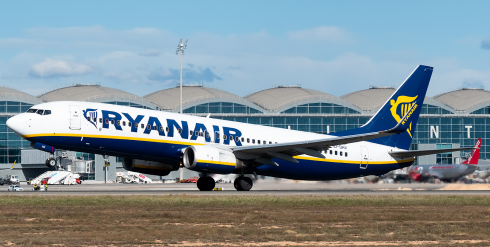BARCELONA will wake up to severe disruption tomorrow as a general strike paralyses the city’s public transport, shuts classrooms and slows down hospitals across Catalunya.
The 24-hour walkout, set for Wednesday October 15, has been called to protest what organisers describe as ‘the genocide in Palestine.’
While several unions are calling a full stoppage, others are joining with shorter strikes throughout the day.
Commuters face the biggest headache. Trains, metros and buses will all run on skeleton timetables, with the Generalitat setting a maximum of 66% of normal service.
That means fewer Rodalies and regional trains, long waits on the Barcelona Metro, and reduced frequencies on TMB city buses and Ferrocarrils de la Generalitat lines.
Intercity coaches and airport buses will also be affected, though the latter must guarantee at least one full round trip to and from El Prat.
Anyone heading to work, school or hospital has been urged to avoid non-essential travel or work remotely if possible.
In education, the strike will leave many classrooms empty. Public and private schools must keep at least one management member on site, but teaching staff will be heavily reduced.
Kindergartens and primary schools must maintain two teachers for every four classrooms, while secondary schools will have just one for every three.
Special education centres and nurseries will run on half their usual staff, and school dining halls and after-class activities will also be cut to 50%.
Parents are being told to check with schools directly before setting off.
Healthcare will also be stretched. Emergency departments, intensive care units, chemotherapy and radiotherapy services will run normally, but routine and outpatient care will be limited.
Out-of-hospital emergency centres such as CUAP, PAC and PADES will open during normal hours with only a quarter of their usual workforce.
Blood banks will operate at 50%, while on-call pharmacies will function as normal.
READ MORE: The big EES digital border system rolls out on Sunday to great fanfare… at just one airport in Spain
The Department of Labour has confirmed that emergency phone lines 112 and 061 will remain fully active with at least 85% of staff, while firefighters, care homes and funeral services will operate under weekend schedules.
Mortuary collections and transfers to cemeteries will continue, though administrative services will run at half capacity.
The Catalan public broadcaster 3Cat has been ordered to maintain 50% of its programming and to interrupt schedules if urgent information needs to be shared.
Private security companies must operate with between 60% and 95% of their staff depending on risk level.
Freight transport will continue only for hospital and pharmacy supplies and perishable products.
Roads and highways will be staffed at one-third of normal levels, and city offices and public registries will run with reduced personnel.
With trains, classrooms and clinics all hit, Catalonia’s regional government has warned that traffic jams, long queues and cancellations are inevitable.
Commuters have been advised to leave early, stay flexible, and keep an eye on updates from Renfe, TMB and Proteccio Civil throughout the day.
The 24-hour walkout was called by four Catalan unions – CGT (General Confederation of Labour), IAC (Independent Workers’ Assembly of Catalonia), Intersindical-CSC (Confederation of Trade Unions of Catalonia) and COS (Sindicat Obrer de Catalunya).
Spain’s largest unions, CCOO (Workers’ Commissions) and UGT (General Workers’ Union), will instead hold two-hour stoppages on each shift.
Click here to read more Barcelona News from The Olive Press.








